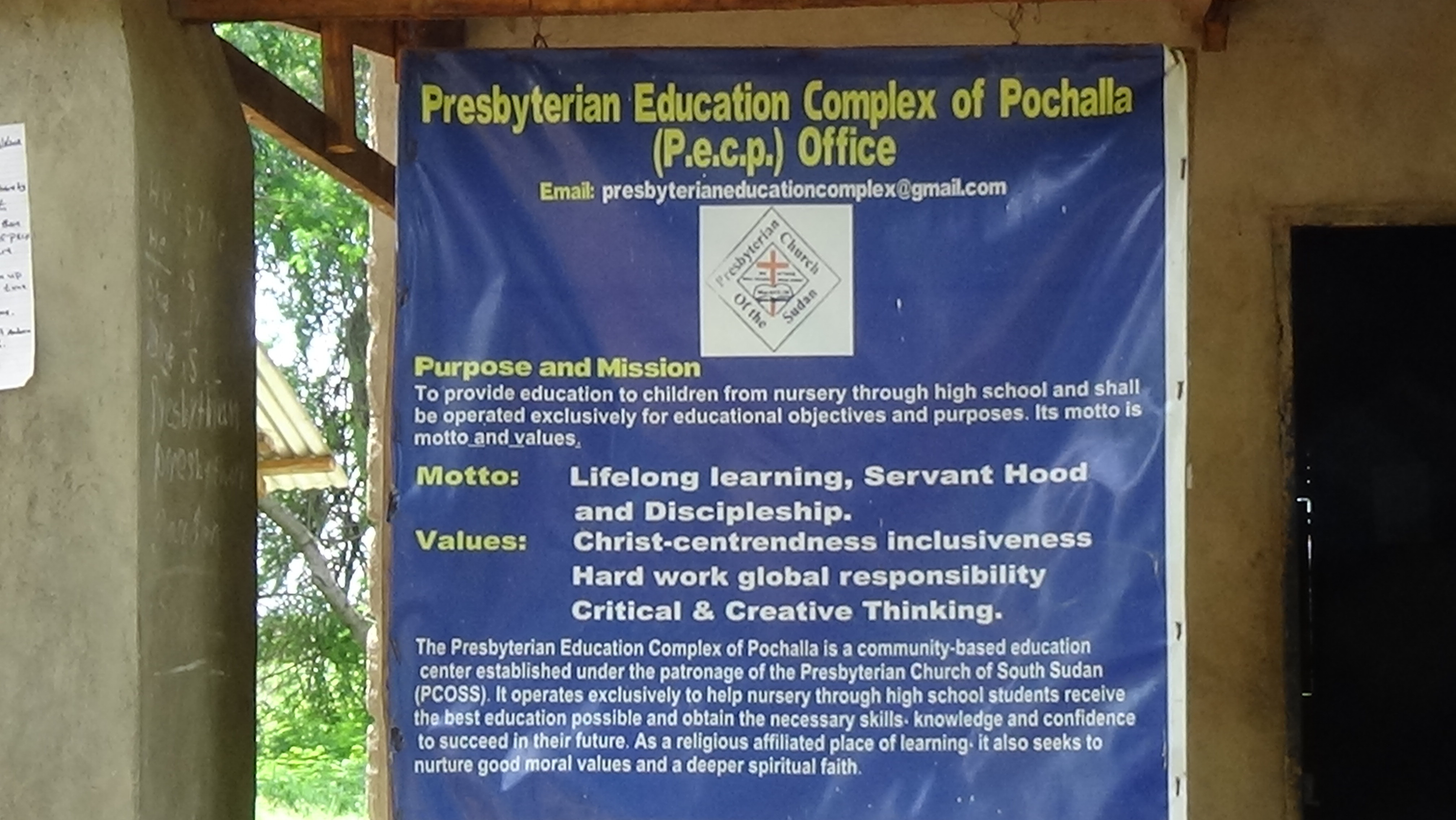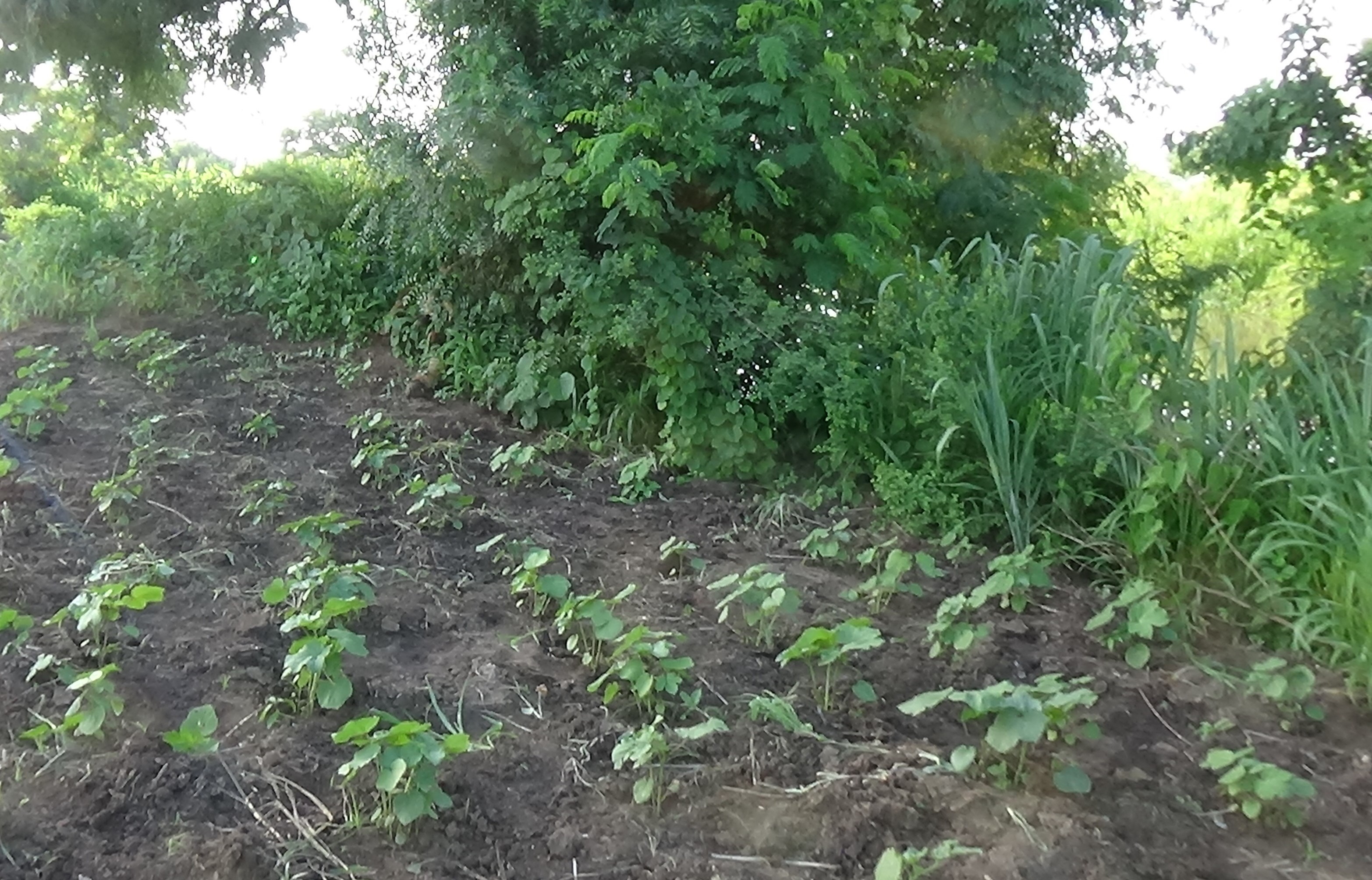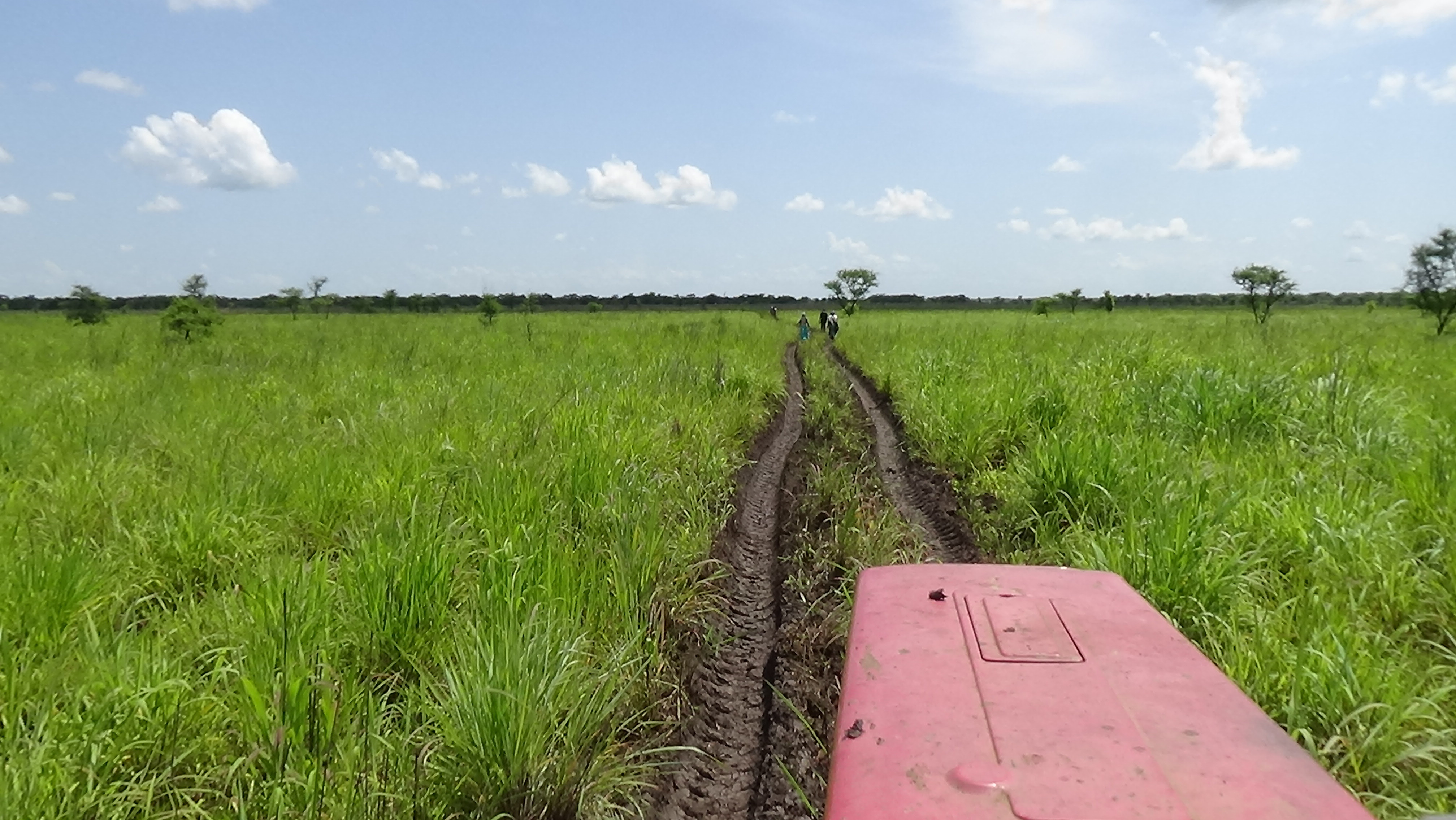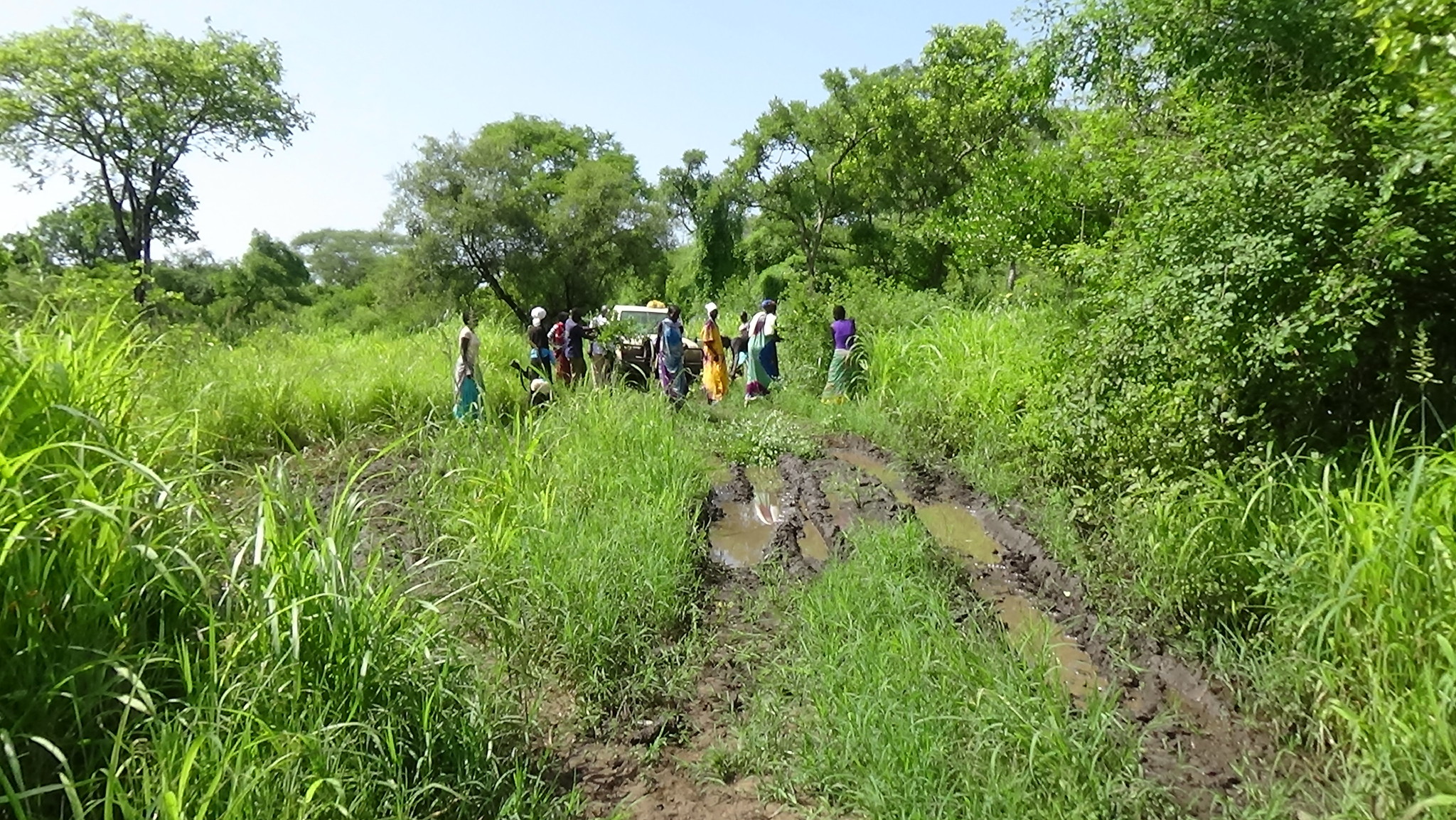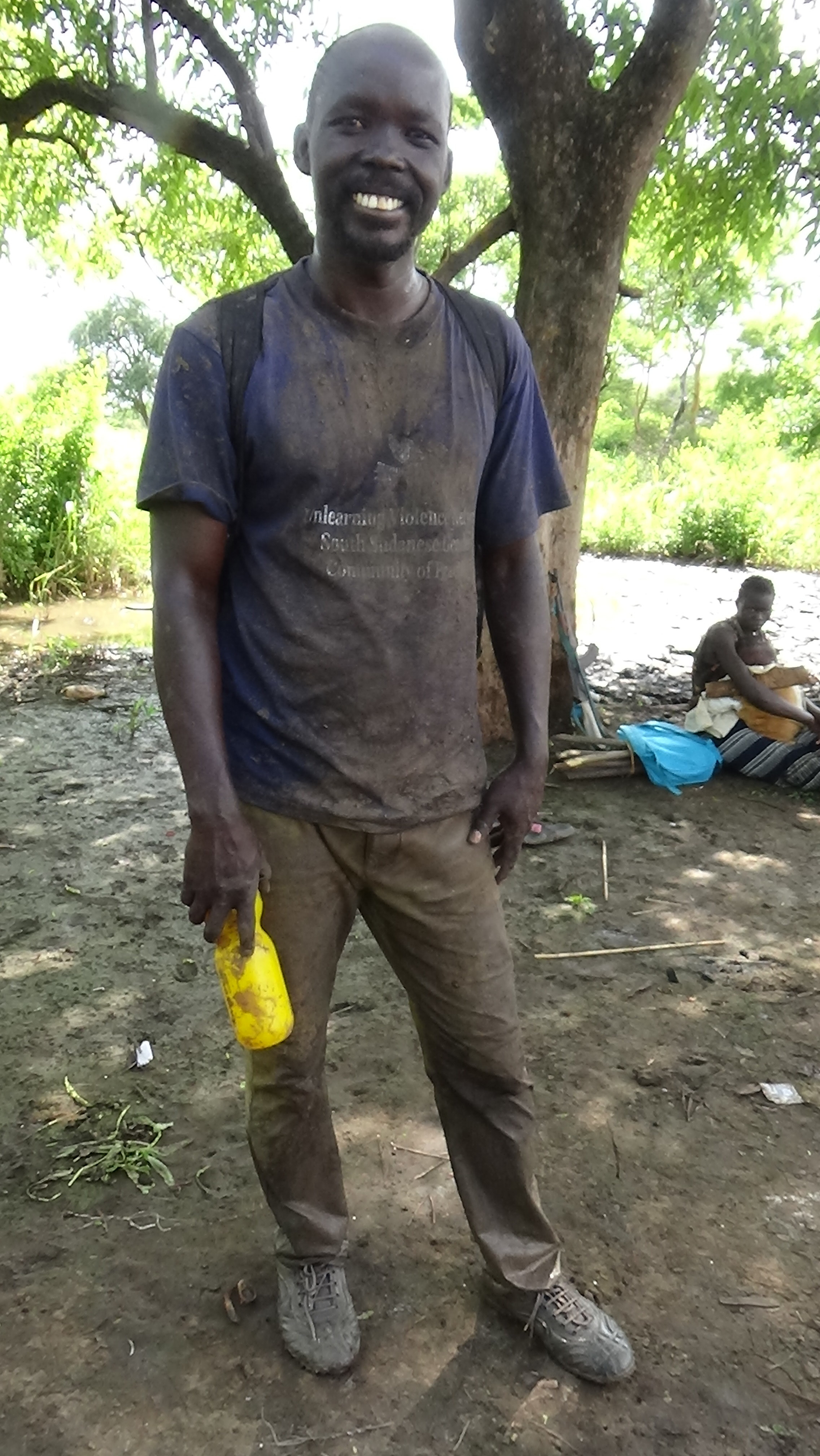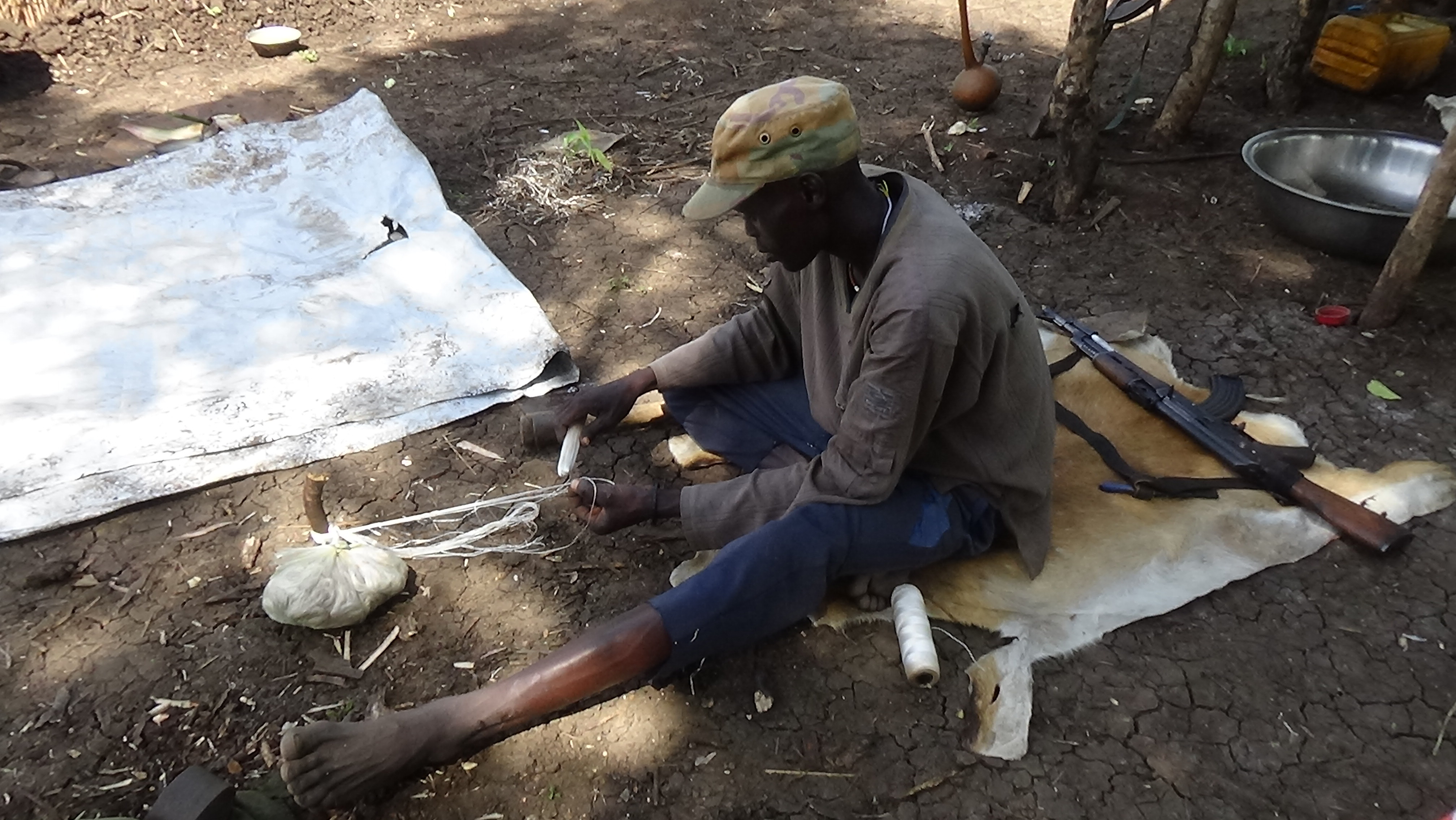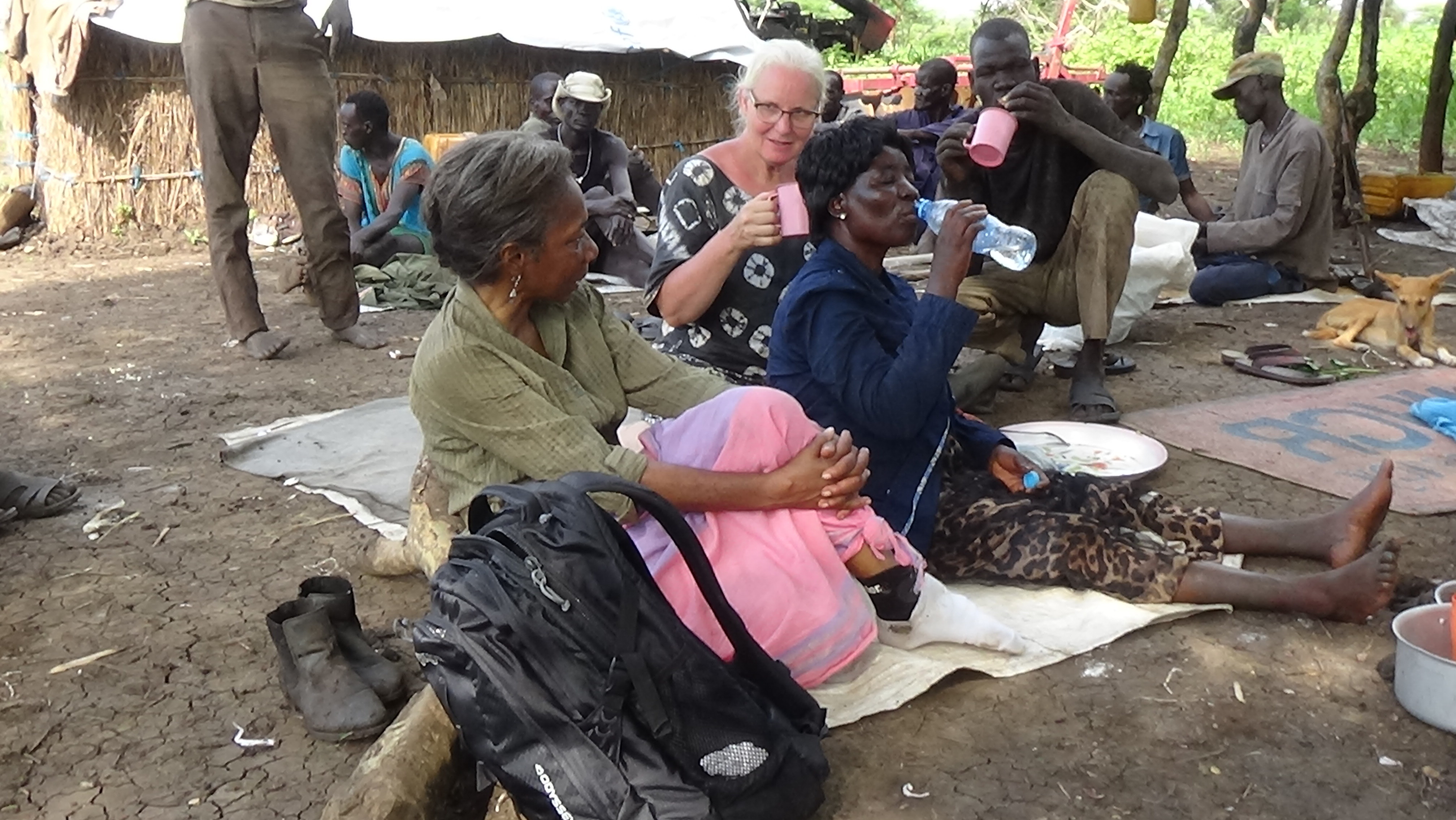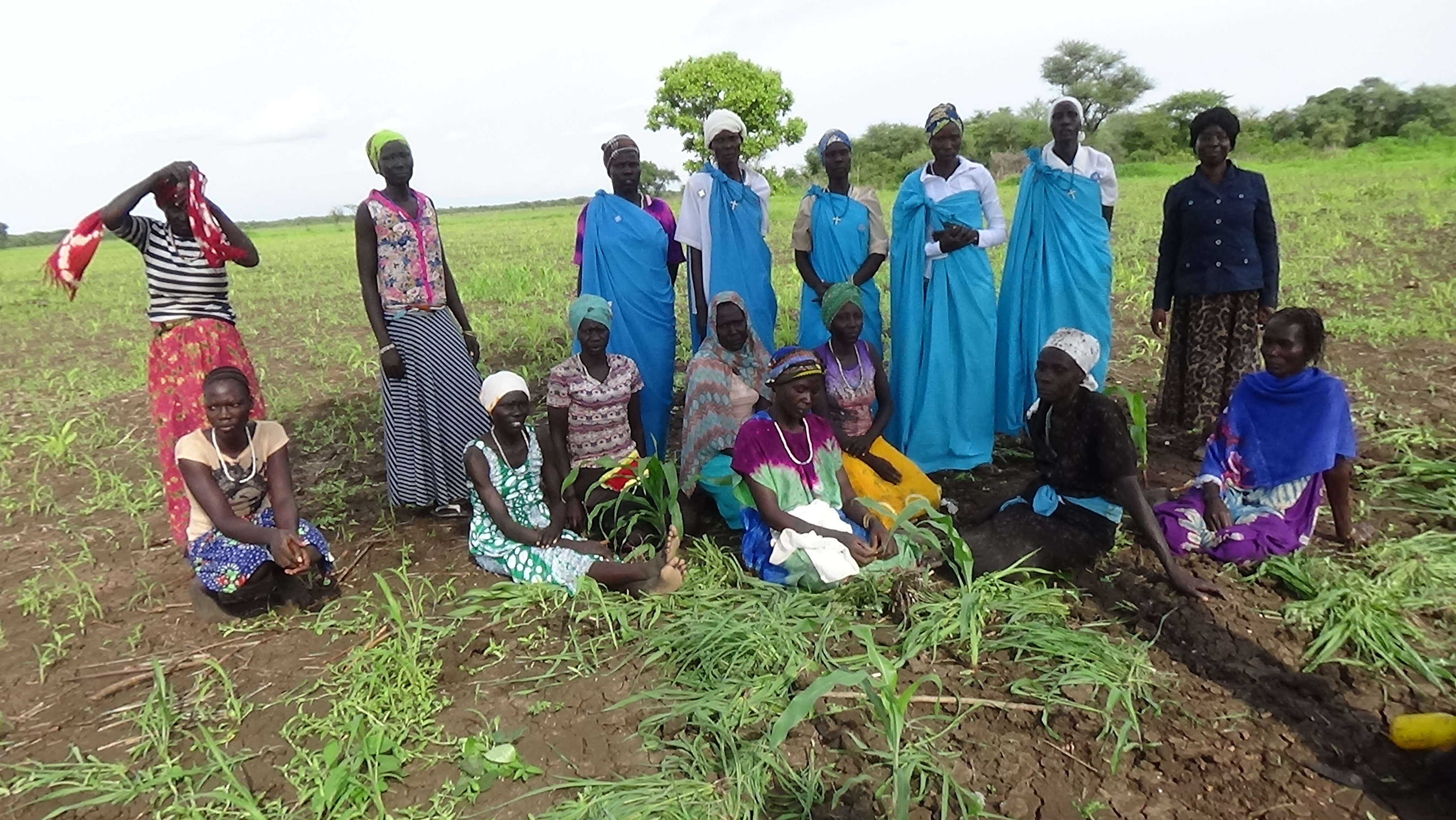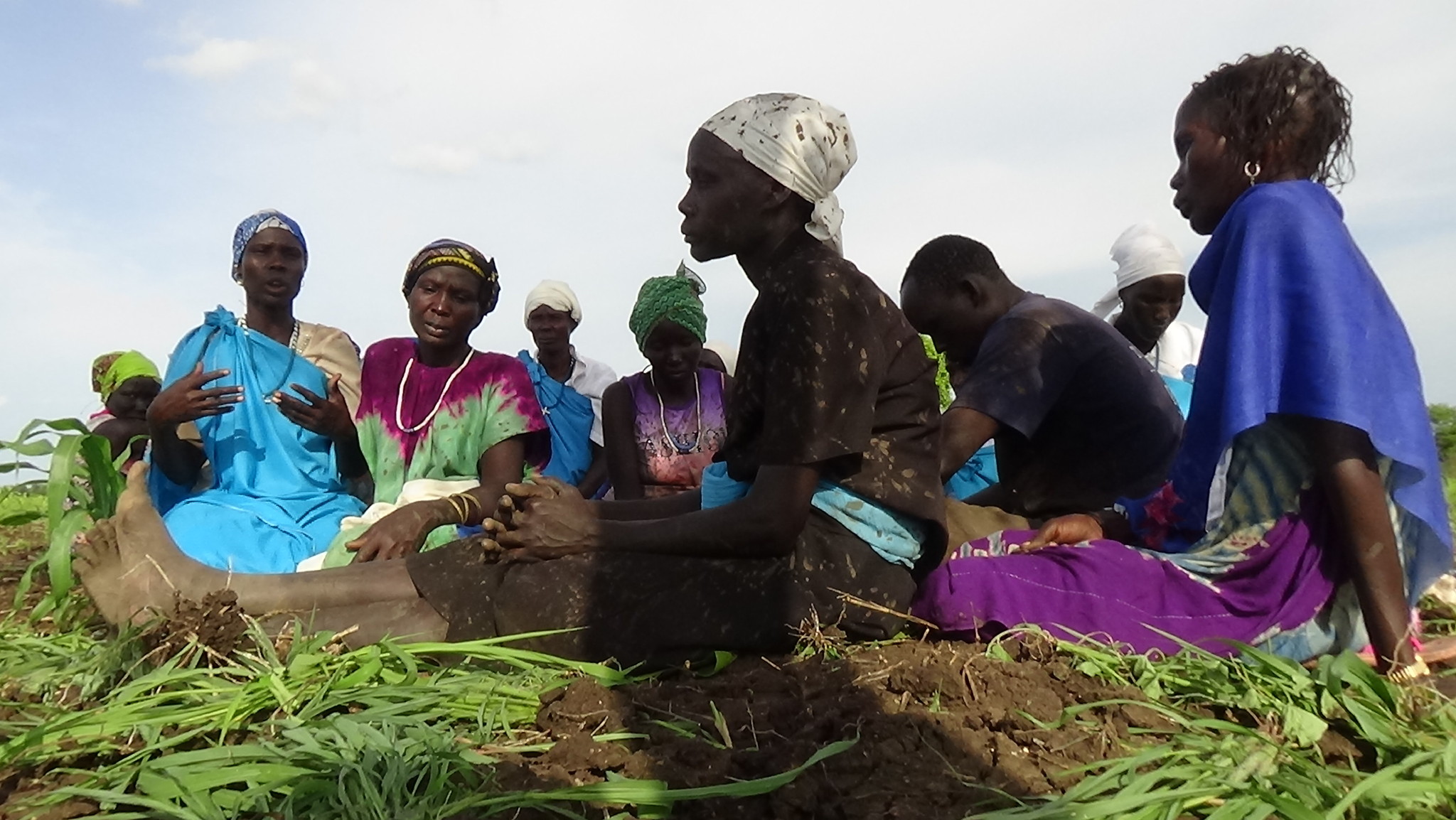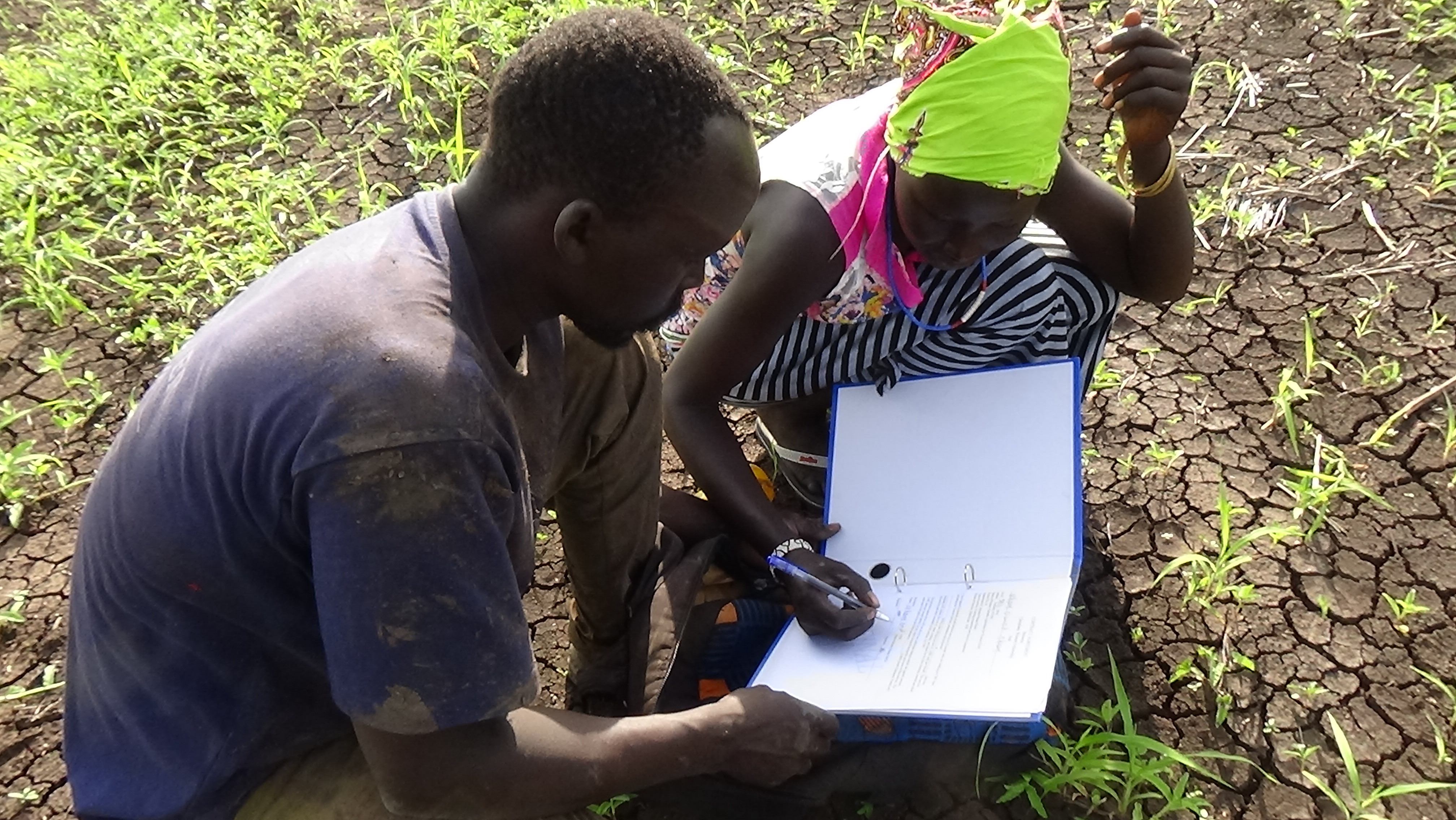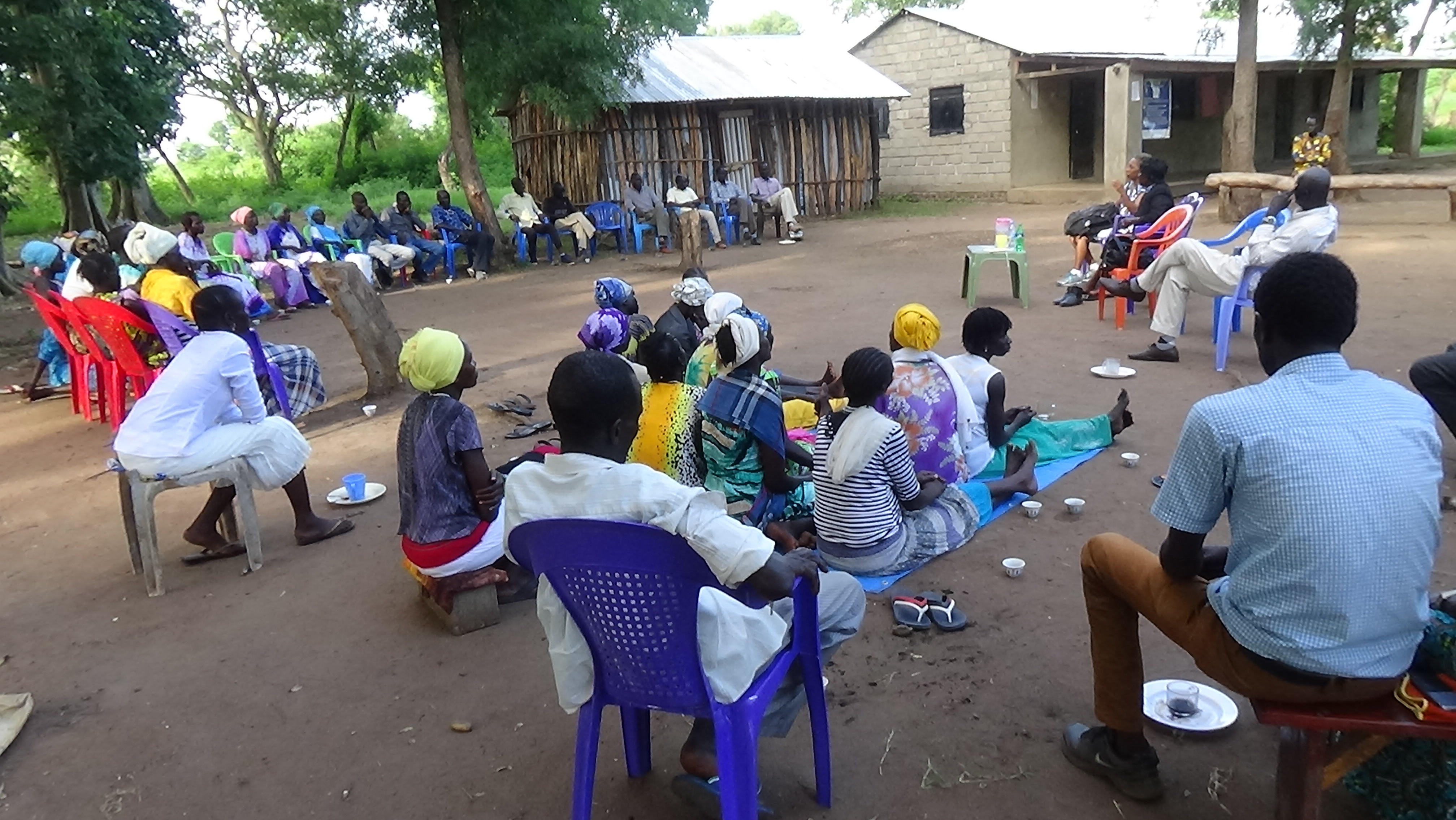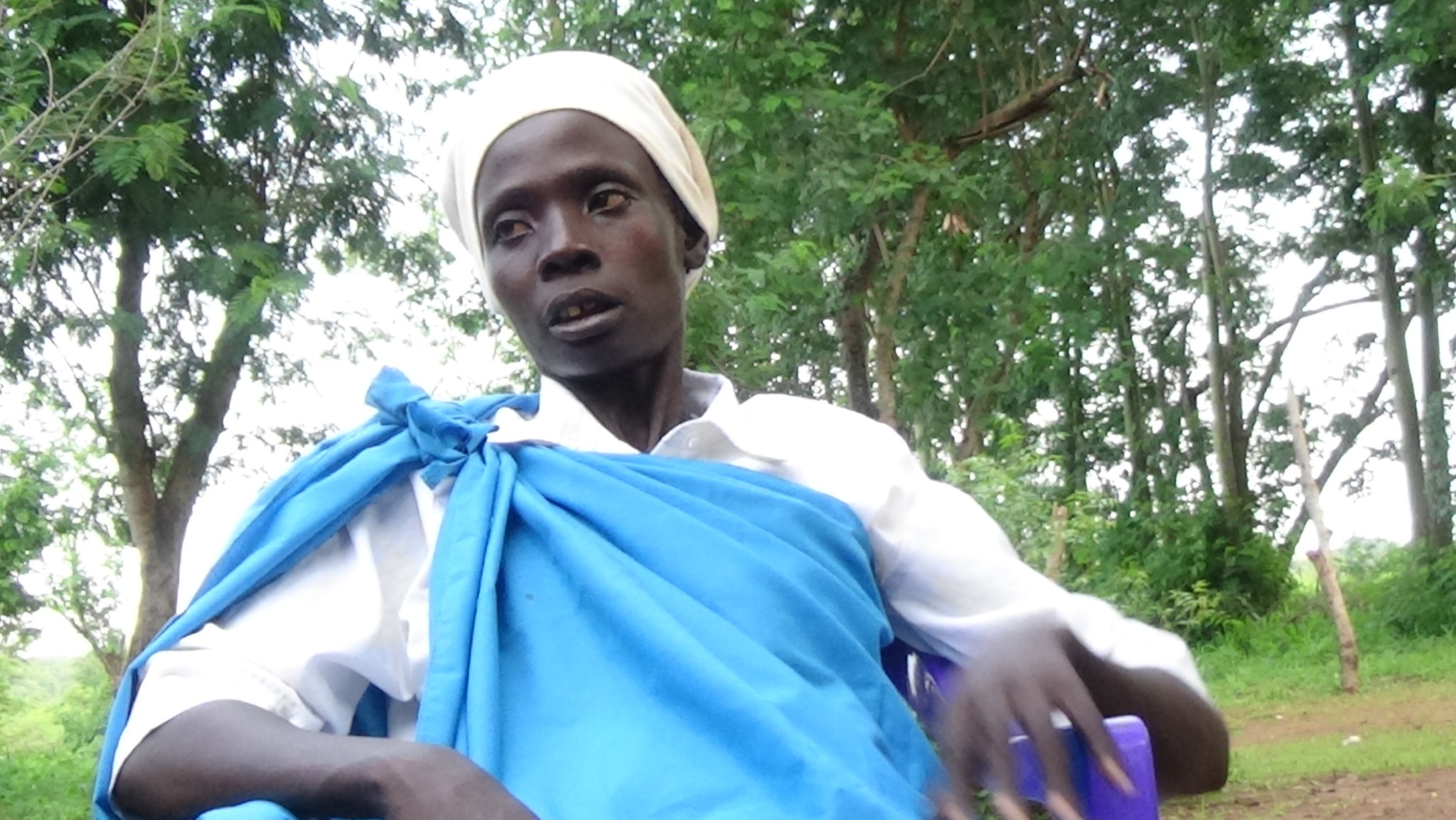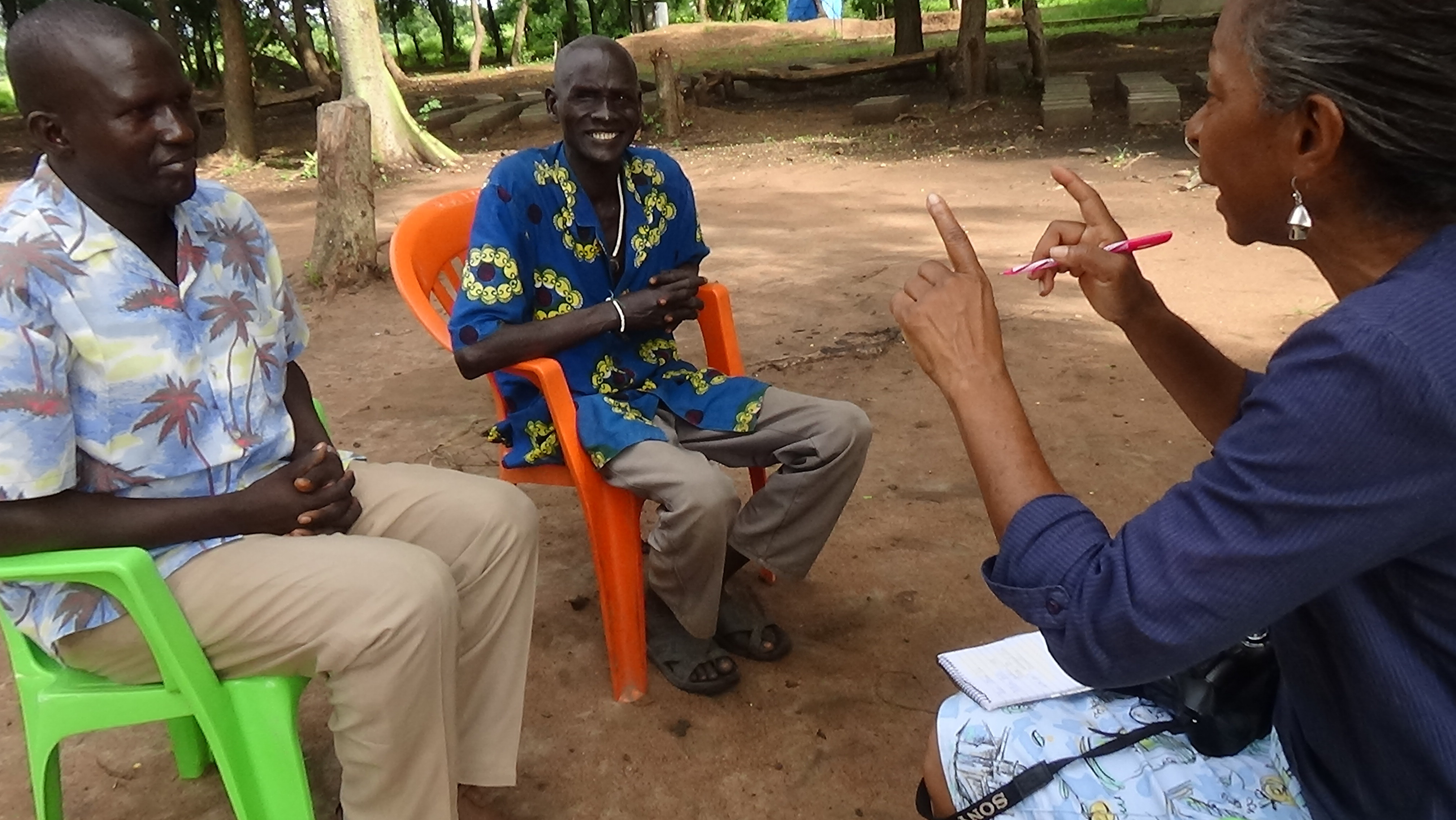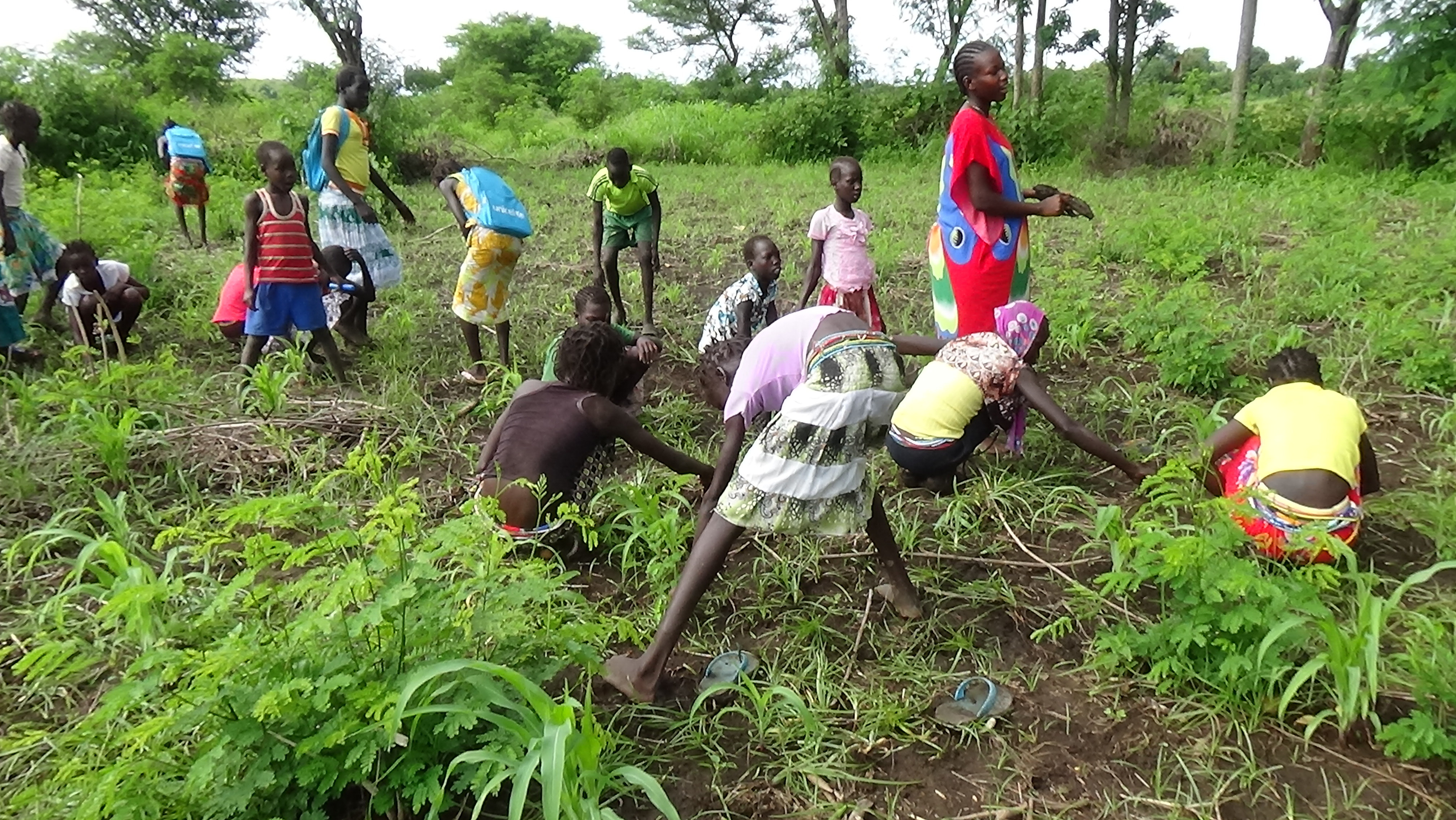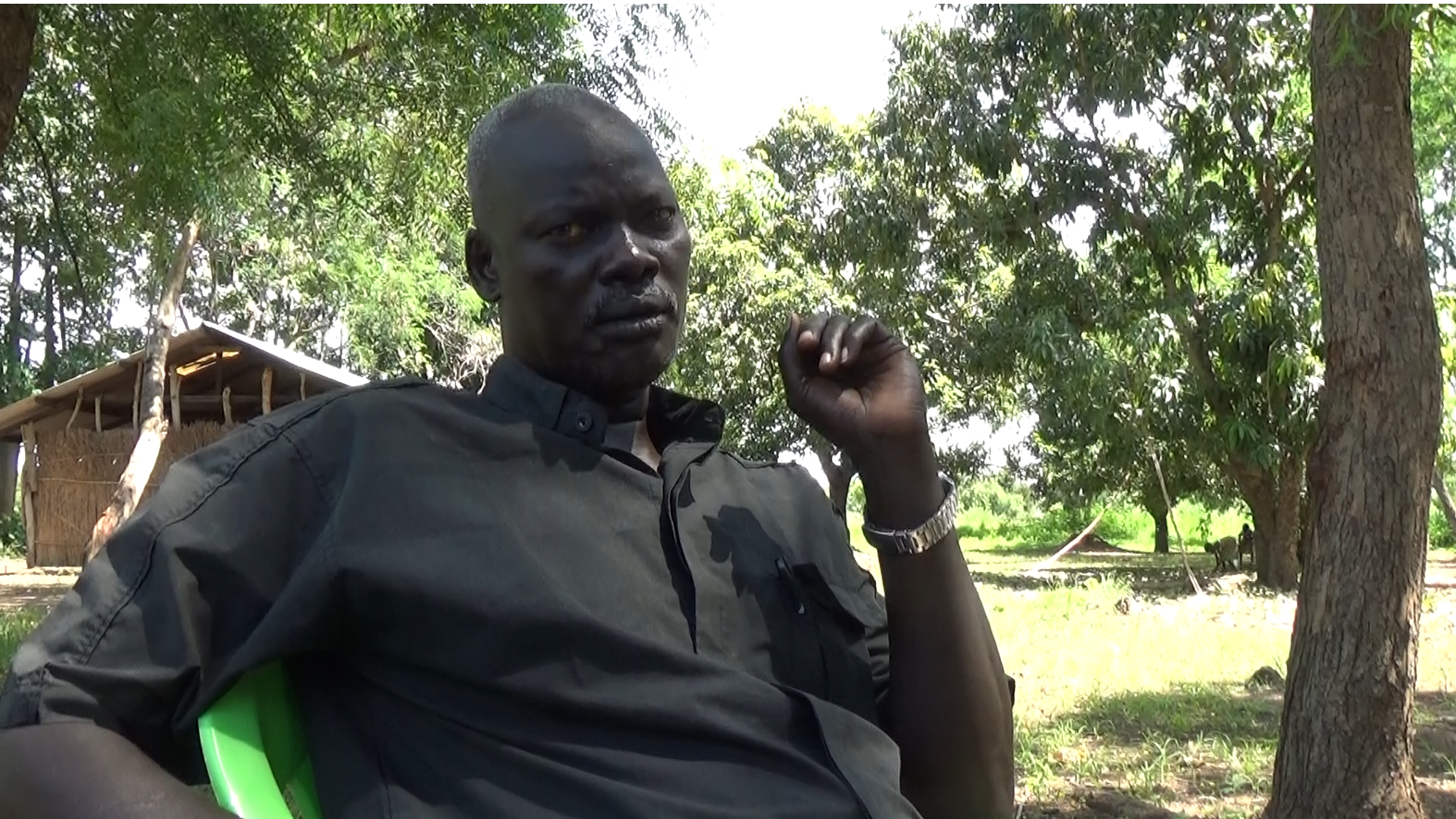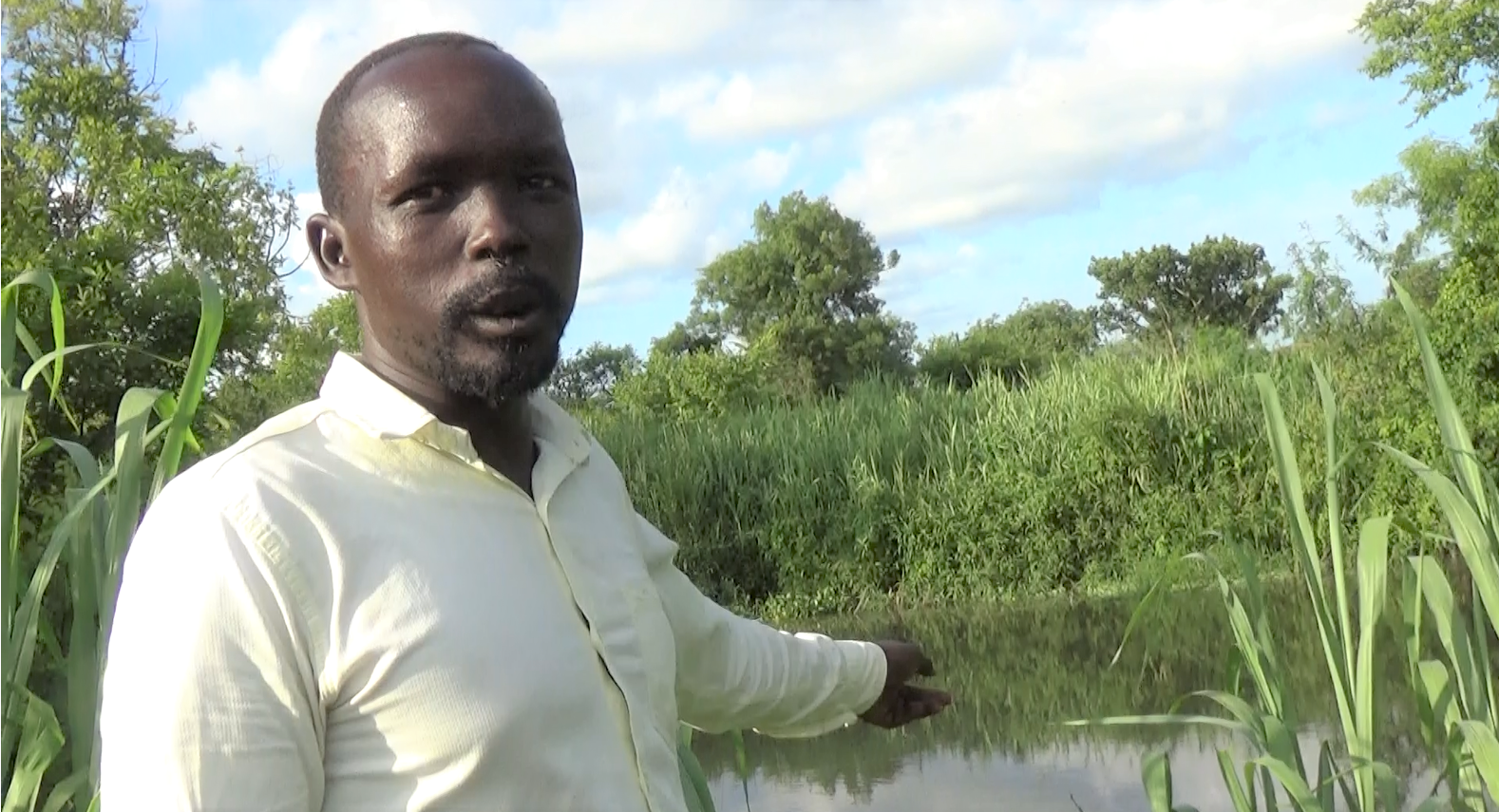A Letter from Christi and Jeff Boyd, mission co-workers serving in Africa
April 2019
Write to Christi Boyd
Write to Jeff Boyd
Individuals: Give online to E200314 for Christi and Jeff Boyd’s sending and support
Congregations: Give to D506075 for Christi and Jeff Boyd’s sending and support
Churches are asked to send donations through your congregation’s normal receiving site (this is usually your presbytery).
Pochalla is a microcosm of the complexities the Church is facing in the global South. Though it was once the food basket of South Sudan thanks to fertile grounds nourished by an extensive river system, the people in this rural border town have in recent years been going hungry. Two decades of civil war have destroyed the socio-economic fabric of this Anyuak community, not only disrupting agricultural production, but also stalling the intergenerational transfer of traditional farming and fishing skills. The psychological impact of the war has hampered the process of recovery and stunted any development efforts. A once food self-sufficient and thriving people has become dependent on international aid with infrequent food distributions that do not meet a family’s daily needs.
In the local culture, farming is the women’s responsibility, but continued insecurity and deep seeded fear of sexual assaults by armed men keep women farmers from walking the long distance to and from their family farms outside the town, while land closer to home has become scarce. Many families have fled the violence altogether, crossing the Akobo River into Gambella, Ethiopia, where they struggle to survive in a refugee camp.
With the dream that Greater Pochalla will once again feed the nation, courageous women from the twelve congregations of the Presbyterian Church of South Sudan (PCOSS) established in Pochalla County decided to turn this situation around. By convincing community members at large to pull together their resources, they not only were able to secure access to a 1235-acre swath of land from the traditional ruler, but also entered into win-win agreements with local non-profit organizations for the use of tractors and other farm equipment that ease the manual labor. With a Thank Offering grant from Presbyterian Women, 400 women and youth from nearby villages were trained by an agricultural specialist and organized into cooperatives. The PCOSS women purchased agricultural inputs and tools and launched the farming activities, starting with just a few acres of cleared land with the plan to gradually expand cultivation during successive biannual farm cycles.
To help younger generations relearn and value farming activities in Pochalla town itself, local PCOSS leaders agreed to the women establishing a five-acre model farm at the Presbyterian Education Complex of Pochalla (PECP). This primary school with 426 enrolled students and 18 teachers was started four years earlier as part of the South Sudan Education and Peace Project and, with a 100% passing rate for its first graduating class of 15, is soon to be expanded to include secondary-level education. Accompanying the women’s efforts is community worker Othow Okoti, a women’s champion and peacemaker at heart.
Two months into the farm project, I had the opportunity to accompany Rev. Paska Aciya, deputy director of the PCOSS Women’s Work Department, and mission co-worker colleague Leisa Wagstaff to visit this visionary initiative that integrates hunger and educational ministries to benefit the entire community and beyond. Upon our arrival, I was introduced to Rev. Ojulo Oju, the parish pastor of the PCOSS congregation in Pochalla town. We all took a quick tour through the demonstration farm at the adjacent school complex. I enjoyed the sights of moist clay and crisp green corn stalks and the refreshing gurgling sounds of the Akobo River into which the school’s model farm drops just yards away from Ethiopian territory across the river. My eyes looked in the direction of the laughter of children taking a bath further downstream. A few youths cast their traditional fishing gear to catch the day’s dinner. While the country continues to struggle to climb out of cyclic violence, these are images of a community actively involved in changing desperation into hope.
As Rev. Ojulo, who is also a senior inspector at the Ministry of Gender, Child and Social Welfare for Boma State, laid out the challenges facing the school and the community, the focus of the conversation suddenly turned to nearby mining activities. Many Pochalla families are still in the refugee camps, he explained, where they make ends meet by digging gold. Now that the crisis is over and Pochalla is relatively stable, parents who realize that without proper education their children lose out on a future want to return. However, their children are lured by the instant gratification of quick money and refuse to attend school, even if the work is hard on their small bodies and risky. One of the PCOSS women leaders told me she had returned just the day before to bring back her now 14-year-old son — against his will. During the two years that they lived in the camp, her son had refused to go to school and started working in the mine instead. The mother said she is convinced that his future is better guaranteed by education than by mining and made him come back with her to Pochalla. The school is even having difficulty retaining its teachers, as they too seek to supplement their meager income by digging gold.At this point, Othow expressed his concern about the children’s health. A mining company had moved in just the year before with large machinery that is operating around the clock and polluting the water in which the children bathe and from which they drink. Not only is the local population affected, but also those living downstream from the installations. The Pochalla county commissioner himself has approached the church with this concern. Rev. Ojulo and Othow are working with him and non-governmental organizations to raise awareness about the long-term consequences of the mining activities.
Rev. Ojulo brought back the conversation to the importance of the women’s farm. Only agriculture can help change the situation for Greater Pochalla, he said, by making the families food-secure and providing them with economic alternatives to the mining activities.
It was the time spent with our partners that allowed me to learn about the contextual challenges the Pochalla community is facing while pursuing their dream of abundant life. Moving well beyond the self-development concept “Give a man a fish and he will eat for a day, teach him how to fish and he will eat for a lifetime,” our global partners urge us to “come fish with us” so we may be better aware of the crocodiles or other dangers that threaten the livelihoods in their communities. This call to a partnership of figurative collective fishing resonated throughout the two-day deliberations at the recent Africa Area Partner Consultation. The event brought together 75 partner representatives from 19 countries across the continent to part of a series of eight global and domestic consultations organized to inform Presbyterian World Mission’s future strategic directions.
I feel privileged to be able to spend time with global partners and their communities on behalf of the PC(USA). The generous contributions from many congregations allow me to travel continent-wide to learn of threats to the vision of abundant life, and to discern with partners how best to come alongside each other to address foremost those contradictions that affect the well-being of women and children. Thank you!
Together in Christ’s service,
Christi
![]() You may freely reuse and distribute this article in its entirety for non-commercial purposes in any medium. Please include author attribution, photography credits, and a link to the original article. This work is licensed under a Creative Commons Attribution-NonCommercial-NoDeratives 4.0 International License.
You may freely reuse and distribute this article in its entirety for non-commercial purposes in any medium. Please include author attribution, photography credits, and a link to the original article. This work is licensed under a Creative Commons Attribution-NonCommercial-NoDeratives 4.0 International License.
Tags: agriculture, Anyuak, child labor, economics, education, Education Complex of Pochalla, farming, food security, Leisa Wagstaff, mining, Othow Okoti, Partner Consultation, partnership, PCOSS, PCOSS Women’s Work Department, PECP, pochalla, pollution, Presbyterian Church of South Sudan, presbyterian women, Rev. Ojulo Oju, Rev. Paska Aciya, south sudan, South Sudan Education and Peace Project, thank offering, trauma, war, women
Tags: Jeff and Christi Boyd
